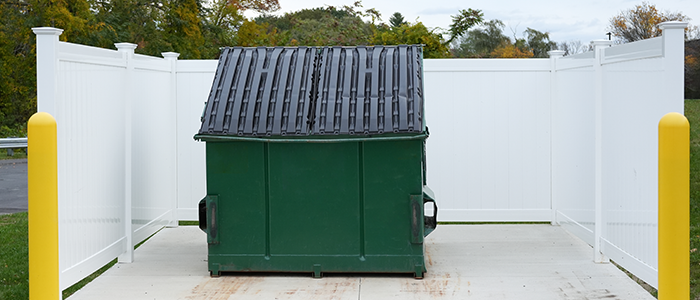Filth flies are a group of flying insects commonly found around decaying organic matter, waste, and unsanitary environments. These pests, which include houseflies, blowflies, and flesh flies, are notorious for their role in spreading diseases due to their habit of feeding and breeding on rotting food, feces, and other decomposing materials. Their presence is not only a nuisance but also a significant public health concern, making effective prevention and control measures by a professional fly exterminator essential for maintaining a clean and safe environment.
How to Prevent Filth Fly Issues
Filth flies usually hatch and grow outside before making their way indoors. To prevent them from entering your business, it’s essential to minimize fly breeding sites outdoors and implement fly exclusion strategies. Consider the following tips for effective fly exclusion:
- Screens: Install and maintain tight-fitting screens on windows and vents.
- Exterior Doors: Keep all exterior doors closed when not in use. Verify that doors are fly-proof when closed with no gaps or missing seals.
- Garbage Chutes: Keep doors to garbage chutes closed when not in use. Chutes should be free of openings to the exterior and connect to dumpsters as tightly as possible.
- Self-Closing Doors: Check timing mechanisms on self-closing doors. Verify that when doors are closed, they are free of fly entry points. A common pest-proofing issue with public entryway doors is the astragal seal at the door base where the double doors meet. Flies can easily enter through the gap at the bottom of doors just as effortlessly as they can fly through an open door. Seals are available for pest-proofing the astragal seal.
- Trash Receptacles: Use trash receptacles with self-closing lids. Self-closing lids can reduce fly-attracting odors and deny access to foraging flies. Make sure all receptacles are emptied frequently.
Should You Be Concerned About Filth Flies?
Filth flies are commonly found in unsanitary conditions and are notorious for transmitting various diseases, including the food-borne illness Salmonella. Houseflies, specifically, are carriers of more than 100 different diseases. They breed in contaminated places like manure and garbage, subsequently transferring pathogens to our food.
Summer is the height of filth fly activity, with warm temperatures providing perfect conditions for their populations to grow rapidly. Under optimal temperature and food supply, filth flies can mature from egg to adult in just seven days. Each female filth fly can produce hundreds of offspring, while a single housefly can lay up to 500 eggs in her lifetime. The combination of a short life cycle and favorable conditions results in a significant increase in fly numbers by the end of summer.
Sanitation Methods to Reduce Filth Flies
To further reduce filth flies, make sure there are no sanitation problems around your business. Here are some suggestions we recommend:
- Regular Cleaning: Clean counters and floors, especially in kitchens and dining areas regularly to remove food residues.
- Trash Management: Use tightly sealed trash cans and empty them regularly to prevent fly access to waste. Wash trash bins periodically to remove residues and odors that attract flies. Regularly clean around and under exterior dumpsters.
- Drain and Moisture Control: Keep drains clean and free of debris, and use drain covers to prevent flies from entering. Eliminate standing water sources to reduce breeding sites.
Fly Control Services You Can Trust
During the summer, businesses often deal with filth flies such as houseflies, blowflies, and flesh flies. While prevention methods can be highly effective, professional fly control is usually necessary once an infestation occurs. Prompt action not only helps in containing the problem but also ensures a safer and more comfortable environment for you and your employees and customers.
If flies are causing issues on your property, reach out to the experts at Gregory Pest Solutions today to receive a free estimate.

